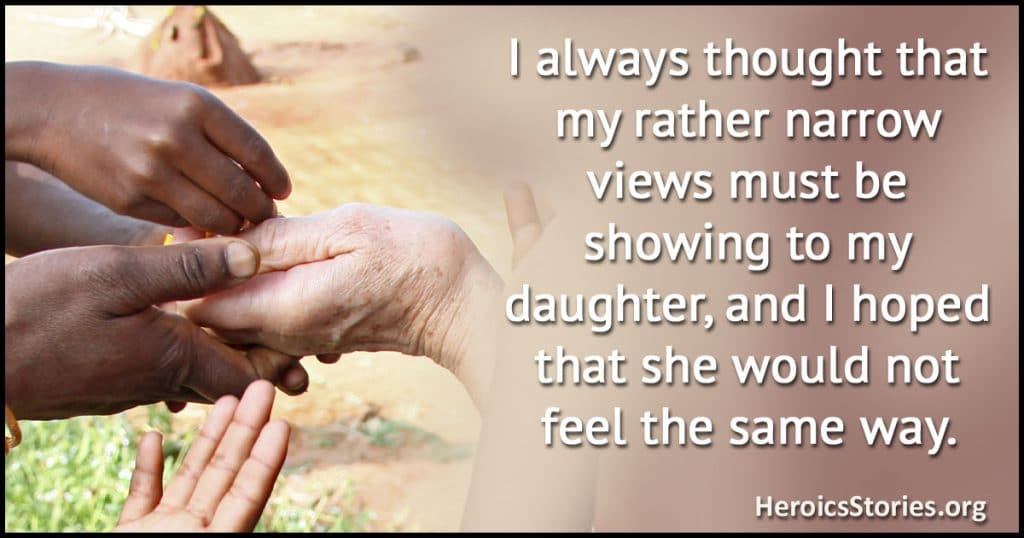by Diane Gallant
Ottawa, Ontario, Canada

I lived most of my life in Cornwall, a small city of 46,000 people. As the town was mainly Caucasian, we rarely saw people of other races. I was raised a Catholic, and didn’t meet many people of other religions. Any I met were also Christians.
In my high school years, I attended a public school, rather than a Catholic one, and was exposed to a bit more diversity. Especially the Mohawk Indians I met who lived on the reservation near the city and attended my high school. However, because of my upbringing (and theirs too, I think), I felt uncomfortable discussing anything about their Mohawk background with them.
So, when I moved to Ottawa, the national capital of Canada, in 1995, at 17 years of age, it was a culture shock. My daughter and I moved into a culturally diverse, income-based rent “project” in the West End of the city, where I knew no one.
I often felt oppressed by the mostly Muslim community, and felt outraged when they canceled long-held Christmas and other Christian celebrations in our community. Now I see that it was because of an overwhelming population of people who did not celebrate these occasions. At the time I felt that if they chose to come to Canada, they should at least respect Canadian culture and traditions.
I always thought that my rather narrow views must be showing to my daughter, and I hoped that she would not feel the same way. My daughter is now five. Until she was three we lived in that diverse community, and she made friends with everyone. She would always smile at people, whether they were drunk, mentally handicapped, black, brown, white, Muslim, or Jew. When we went to play groups held in the community, she often made friends of other races.
After we moved away, she was babysat with another girl her age whose mother was white and father was black. This girl was my daughter’s best friend, and she never judged her, even when other adults around us did. One day, after she wasn’t being babysat there anymore, she asked me when she was going to see her friend again. I didn’t remember the name she mentioned, and asked her who this was. “You know,” she said, “my friend with the black face.”
This showed me that although she did see the difference between them, and noticed it, it was no different than if her friend had had a different eye or hair color. The best thing is that she learned this despite my own prejudices.
I know that telling this story makes me look bad, and shows that I have prejudice that I still have to work on. I just hope that I can always remember the example my children give me. If we all remember to see through the eyes of a child, there will be more hope for this world.
Podcast: Play in new window | Download (Duration: 4:21 — 3.4MB)


Excellent example of how racism and prejudice are learned behaviors. The daughter was never taught to be prejudiced, and it shows.
And since they are learned, they can also be unlearned. Good on the author for recognizing this and making the effort to unlearn her own prejudices and learn to be more inclusive. A child like her daughter can be an excellent teacher in this respect.
Although it’s been 20 years since this was originally posted, it will always be timely. Thank you. There are two kinds of people, I have always felt – those who admit their struggles against prejudice, and those who are blind to it.
Through the eyes of a child.
In her final paragraph she apologizes for having prejudices that she is still “working on”.
We _all_ have prejudices, from culture we are raised in, the media we are exposed to, and our genetic nature to fear the unknown and different. She is working on them; that’s is to be applauded, not apologized for. That she works to keep from instilling in her child is even better.
The evil of racism is not from prejudices we have, but from believing them, defending them or pretending they don’t exist. The best of us have examined our prejudices, and deny them power. But they are still lurking in the back of our mind, waiting for an unguarded moment or thoughtless comment. Beware,